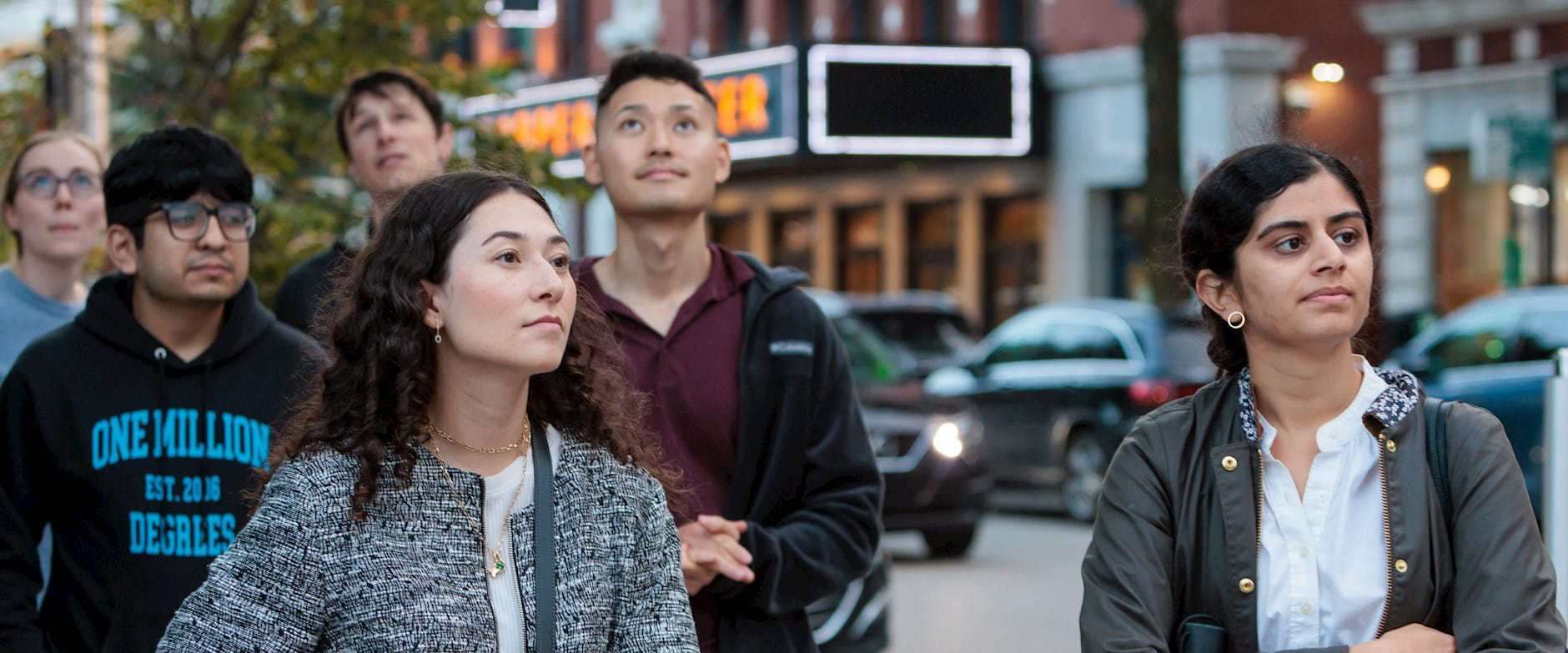When first year Chicago Booth student Maggie Hom signed up for the Rustandy Center’s Civic Chicago’s bike tour of the South Side, she expected to learn about urban change and renewal in a neighborhood that she was unfamiliar with. What she didn’t expect were stories about the vibrant culture of the South Side - music great Nat King Cole playing at a local school, US Poet Laureate Gwendolyn Brooks reading to young children. “There was so much joy,” she said. “It was the perfect way to learn about urban issues and the rich history of the South Side.”
Civic Chicago provides opportunities for Booth students to explore civic engagement and social impact through the lenses of local communities in the city. While Civic Chicago offerings vary each year, recent events have included a walking tour of the university campus in Hyde Park and the neighboring Woodlawn neighborhood, learning about collaborative models for urban design and revitalization, and a roundtable discussion with local business leaders.
Along with the educational and social impact components, the program offers Booth students ways to familiarize themselves with the city, in particular with neighborhoods around the campus.
George Wu, the John P. and Lilian Gould Professor of Behavioral Science, joined the bike tour to share facets of Chicago’s economic and social history with the participants. “Our MBA students, especially those in the full-time program, often don’t know much about Hyde Park and the area around it. I wanted to give them a sense of the complicated and beautiful stories of the neighborhood,” he said.
Luiz Renato Valadão Madoreira, a second year MBA student, signed up for two Civic Chicago events - a walking tour of Hyde Park and its surroundings, and a tour of architectural sites and exhibits connected to social impact and sustainability in the city’s downtown Loop area. “It showed me two very different sides of the city,” he said. “Hyde Park is about the impact of policies on people. Walking through the Loop is like walking in the heart of capitalism.”
Such reactions are exactly why Ghian Foreman, ’01, adjunct assistant professor of strategy and president and CEO of Emerald South Economic Development Collaborative, is enthusiastic about Civic Chicago’s programming. Foreman, who grew up in Hyde Park, says it is important for Booth students to understand local neighborhoods. “Whether you work in banking or biotech or something else, you are going to be touching local communities,” he said. “You can speak corporate language but it is also important to understand the language of the neighborhoods. It is important to be bilingual.”
Along with deeper appreciation for the urban issues that influenced Chicago, and the South Side in particular, Valadão Madoreira says Civic Chicago encouraged him to make a conscious effort to engage with the neighborhood around campus. “It doesn’t have to be a grand gesture. It can be as simple as buying a cup of coffee at a local business and chatting with the people there,” he said.
Hom, who moved to Chicago from Brooklyn, said that she is looking forward to signing up for the Social Impact Lab, a class in which teams of students work with local partners to develop proposals to drive social impact on the South Side. “The bike tour showed me the need but it also showed potential solutions and the vibrancy of the neighborhood,” she said. “The South Side has so much to offer.”


